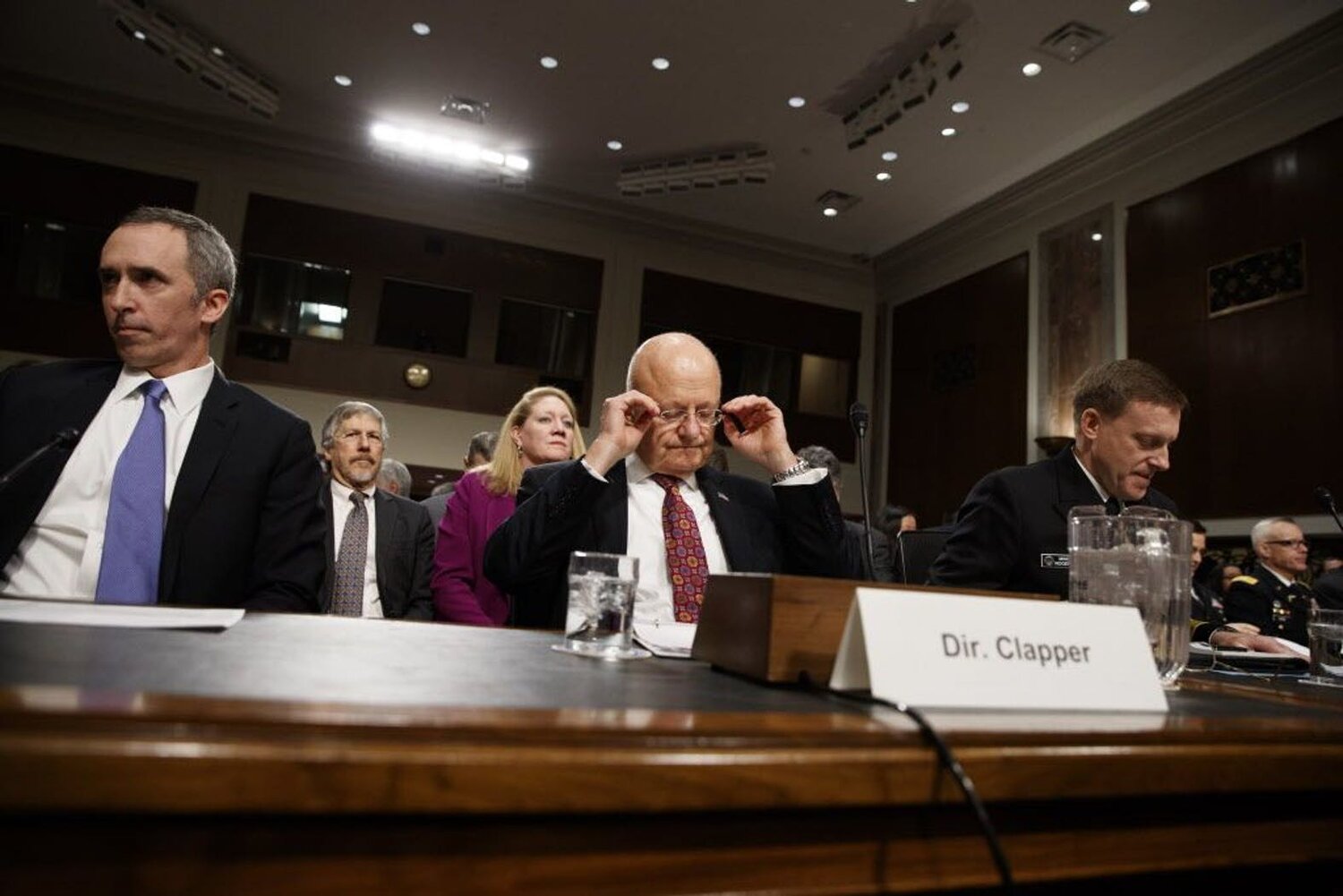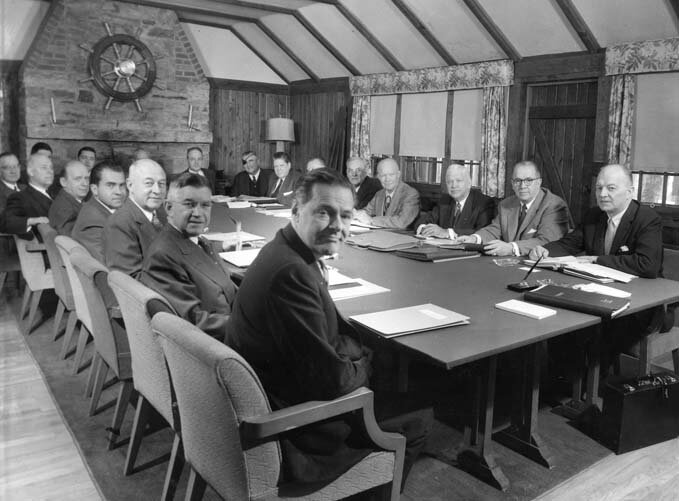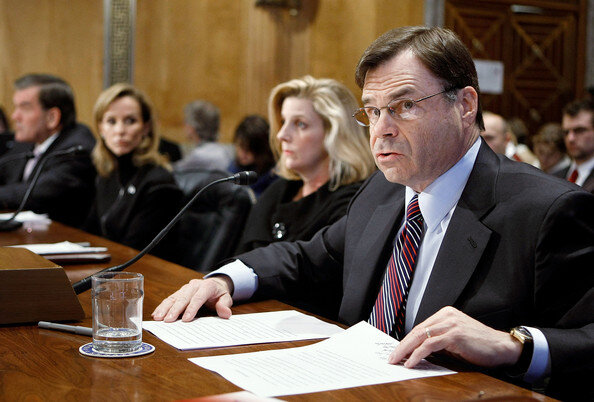How should the United States prepare for a future information warfare conflict against its adversaries, and how should it organize? These questions are being explored across multiple defense agencies, think tank organizations, and the military. Conrad Crane, Chief of Historical Services for the United States Army Heritage and Education Center, U.S. Army War College, has made a case for establishing an information warfare command.[1] Fundamental to his critique was the need to restructure Army Cyber Command to prepare for large-scale information warfare operations, in part because possible U.S. adversaries now realize the utility of integrating and synchronizing information and communication technologies to execute such activities. In Crane’s view, evolving Army Cyber Command into an information warfare command would prompt decision makers to think critically about information warfare as a holistic subject, not as an afterthought.
Crane’s proposition situates him in a long line of academic and defense professionals who recommend determining how best to curtail influence activities emanating from adversarial nations such as Russia and China. Recommendations include instituting an irregular warfare curriculum within professional military education, sharing political warfare threats across Departments of Defense and State, and establishing an information warfare center.[2] Russia’s interference in the 2016 United States presidential election also spurred policymakers to call on Defense and State agencies to craft a coherent counter-information warfare plan that focuses on enhancing cyber defense tools, collaborating with European allies and the North Atlantic Treaty Organization on cyber security initiatives, and educating people and organizations to avoid becoming targets of malign cyberspace influence by Russia and China.[3]
Today each of these initiatives are being implemented to some extent. Yet little compelling evidence indicates such efforts are effectively curtailing Russia’s or China’s illicit activities against the United States. Consider the Center for Strategic and International Studies publication that tracked cyber attacks since 2006.[4] Attacks on infrastructure, use of disinformation activities, theft of intellectual property, and other illegal activities have increased, not decreased. Equally alarming, James Clapper, the former Director of National Intelligence; Marcel Lettre, former Undersecretary of Defense for Intelligence; and Admiral Michael Rogers, former Commander of the United States Cyber Command and Director of the National Security Agency, jointly cautioned that cyber threats have become more complex, more varied, and more lethal.[5] These concerns suggest a substantial dose of skepticism over the efficacy of America’s ability to counter adversarial information warfare activities and further underscore the capability of Russia, China, and their allies to impose considerable policy dilemmas on this front.

U.S. Defense Undersecretary for Intelligence Marcel Lettre, Director of National Intelligence James Clapper, and National Security Agency Director U.S. Navy Admiral Michael Rogers testify before a Senate Armed Services Committee hearing on foreign cyber threats in January 2017 (Jonathan Ernst/Reuters)
Because information warfare is likely to be a mainstay of warfare for the near future, the National Security Council should consider establishing an information warfare directorate. The directorate’s intent should be to:
conduct periodic holistic reviews of U.S. information warfare effectiveness;
determine the role and responsibility for each involved department and agency;
identify the best institutional arrangements for sharing sensitive information across the government; and
determine the best way to integrate the president’s political and military policy objectives into a coherent, all-government, counter–information warfare plan for action.
The directorate should provide principal National Security Council staff members with pragmatic policy recommendations that can be readily implemented to defend the United States, its allies, and interests. This article further suggests that countering adversarial information warfare expands beyond the precinct of the Departments of Defense and State.
A Limiting Factor for the Departments of Defense and State
Despite the recurring recognition by senior political leaders in the United States that information warfare presents a serious national security concern, this complex issue has been largely relegated to the Departments of Defense and State to address. For instance, the 2018 National Defense Authorization Act tasked the two departments to develop a plan to counter Russian information warfare.[6] In fiscal year 2020, the act was expanded to include China. Notwithstanding the mandate by various domestic agencies, such as the Department of Homeland Security and the Office of the Director of National Intelligence, to provide a report to various House and Senate intelligence committees, the lead role for identifying, preventing, responding, and upsetting adversarial influence has largely been relegated to the Departments of Defense and State.[7] Because information warfare expands beyond the Departments of Defense and State and into the domestic arena, this strategy needs to be approached more practically by relying on interagency cooperation for effective support.
Admittedly, war and diplomacy have traditionally been the respective responsibilities of the Departments of Defense and State. When conflicts, such as those in Iraq and Afghanistan, presented the military with a different warfare paradigm, the United States adapted its civilian and military force structure to meet those challenges. Information warfare, however, presents unique challenges because it does not fit neatly within the U.S. defense framework. Specifically, conventional armies seem to be less of a target of interest to adversaries than the nation’s population and critical infrastructure. In fact, a nation’s society, water and power systems, banking systems, and corporate network infrastructure are now common targets of adversarial information warfare campaigns to influence domestic and foreign policy.[8]
It is becoming increasingly clear that information warfare is a different phenomenon from traditional warfare: in information warfare, there are no sideliners, everyone is a target, and everywhere is the battlespace. Thus, any attempt to put the burden on just the Departments of Defense and State to counter information warfare efforts is likely to be fraught with complex authority issues about which domestic department or agency is charged with various information warfare tasks.[9] Here, the Department of Homeland Security, Central Intelligence Agency, Federal Bureau of Investigation, and various domestic intelligence agencies will undoubtedly have roles to play. The challenge is to precisely identify those roles.
Need for an Information Warfare Directorate in the National Security Council
Reflecting on the National Security Council’s development, Robert Cutler, President Dwight D. Eisenhower’s former special assistant, raised an important question: What is the best way to address emerging domestic and national security issues affecting the United States? The question is especially pertinent when adversaries increasingly rely on disinformation, propaganda, and cyber attacks to influence U.S. policy. In Cutler’s view, the Council should comprise individuals who—because of their experience and office—could provide the president with sound practical policy recommendations on national security. In the face of geopolitical challenges, the question of information warfare and its adverse implications is very much an appropriate topic for the National Security Council to take up.[10]

President Eisenhower meets with National Security Council at Camp David in 1955 (Wikimedia)
Instituted under President Harry S. Truman in 1947, the National Security Council is the principal forum for national security and policy experts to assist the president in making informed decisions about domestic and foreign policy issues. The Council’s purpose is to solicit policy recommendations from various defense, foreign, economic, and intelligence departments and agencies. Ideally, policies cascade through the executive branch to shape the programmatic actions that each department and agency executes to fulfill the president’s policies. The National Security Council, as Cutler observed, is thus the country’s most influential governing body when it comes to devising policies that protect the United States from both internal and external threats.[11]
In tackling the complex topic of information warfare, the National Security Council should establish a directorate to enable principal advisors to think more clearly about how adversarial foreign powers use the information sphere to undermine America’s competitive advantage. Ideally, the directorate would meticulously comb research and studies about information warfare, as well as establish an expectation that subject matter experts in the subject of information warfare serve in roles guiding national security policy.
The consequences of advanced twenty-first century disruptive digital technologies illustrate the point neatly. Too little attention is paid to the consequences of disruptive technologies in a large-scale information warfare campaign against the United States and its allies.[12] To this author’s knowledge, no wargaming or thorough analysis exists that has cogently conveyed the consequences of a well-coordinated, synchronized, large-scale, information warfare attack against a civilian population: power, water, and electric systems; financial industry; private and public companies; and defense community. What are the security implications of information and communication technologies, as they carry the potential to create mass disruptions across the social, economic, political, and military domains?
Other questions the directorate might explore are many and varied. What are the roles and responsibilities of the Department of Homeland Security, the plethora of domestic and foreign-focused intelligence agencies, and the military in an offensive and defensive information warfare scenario, and how might this change existing policies or authorities for these organizations? What are the domestic and foreign policy implications for a catastrophic event? How should sensitive information be shared among all the relevant government and civilian institutions without being inadvertently disclosed to the wrong people or organizations?
An information warfare directorate within the National Security Council could help tease out answers by relying on expert briefs from the defense community, think tanks, corporations, and academia. In turn, the directorate could provide careful summaries to the National Security Council’s core members, allowing them to truly begin to enumerate the pragmatic policy options. Ideally, after frank debates among principal National Security Council members, resolutions for action should emerge and shape presidential policy.
One can argue the intelligentsia, think tanks, and many Defense institutions are tackling bits and pieces of this puzzle.[13] However, their findings likely have not been adequately digested by the National Security Council to determine what meaningful policies need to be implemented. Thus, legislating several cyber security policy measures or executing one-off or ad hoc counter-influence activities in the absence of a clear understanding of modern information warfare sounds impractical. Specifically, a net assessment of the adverse effects of information warfare against the United States is missing. Such an assessment would bring to the fore whether a re-look at the current defensive and offensive posture is warranted.
Moving Forward: Information Warfare Requires Transformational Leadership
In providing an update to the thirty years of Goldwater-Nichols reform, James Locher III cautioned congressional leaders that organizations must evolve to meet the challenges of their environments.[14] This charge was previously lobbed at the Department of Defense, which Locher concluded had become organizationally ill-equipped to handle emerging twenty-first century threats that were increasing in complexity and volatility. This caution can now be broadened to include the whole national security apparatus. As the United States grapples with various domestic and international challenges emanating from Russia and China, this assertion becomes even more alarming. Arguably, the United States is entering a phase of turmoil unfamiliar to its senior political leadership, a phase that may be every bit as difficult to fight as any conventional battle. The United States will undoubtedly sustain great losses from a combined information warfare effort by Russia, China, and their allies.[15] And a fragile United States would provide fertile ground for other anti-United States nations to join the effort.

James Locher III testifying on Capitol Hill in 2009 (Chip Somodevilla/Getty)
Perhaps the congressional mandate for the Departments of Defense and State to counter information warfare might lead to some success. Should the U.S. continue down this path, however, it should not be surprised to find the solutions generated to have minimal effect.
President Eisenhower believed the National Security Council was the right coordinating body for senior United States policy and military officials to discuss and generate the most practical solutions to America’s most pressing security issues—independent of the department or agency they represent. Given today’s complex operating environment, what is required is an inclusive information warfare directorate, led by the National Security Council that identifies the appropriate means to protect the United States public and allies in an increasingly chaotic and dangerous era. It will require what Joseph Nye referred to as transformational leadership—the ability to cogently understand the trajectory of events in order to develop appropriate soft- and hard-power strategies that can evolve into sound policy.[16] In the defense sector, where bureaucratic, institutional, and human factors often combine to frustrate progress, this quality is in short supply and high demand.
No comments:
Post a Comment